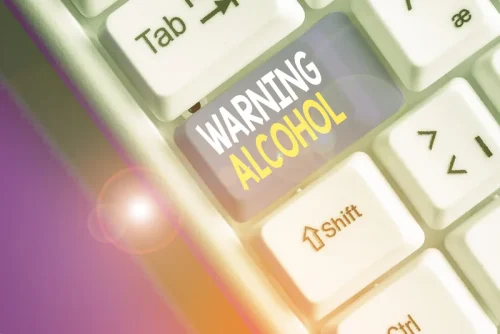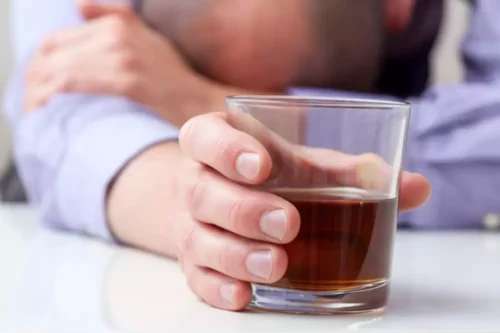Sleep problems are common during this phase and may be prevalent in about 65% of individuals during this phase (Brower et al., 2001a, Kolla et al., 2014). Subjective complaints in those with insomnia as compared to those without include longer SOL, increased WASO and lower sleep efficiency (Brower et al., 2001a, Conroy et al., 2006b). PSG sleep findings during the first 8 weeks of abstinence include increased SOL and stage 1 sleep and decreased TST and SWS % (Gillin et al., 1990b, Gillin et al., 1990a, Moeller et al., 1993, Le Bon et al., 1997, Brower et al., 2001a). REM sleep findings have been inconsistent during this phase with some studies reporting a decreased REM sleep latency and increased REM % (Gillin et al., 1990a, Williams and Rundell, 1981) whereas other studies did not (Gillin et al., 1990b, Le Bon et al., 1997). It is to be noted that individuals in early recovery may overestimate their subjective SOL but underestimate their WASO, as compared to their PSG estimated indices (Conroy et al., 2006b). There are few other longitudinal population based studies with which to compare our findings.
- A 2020 study found that people with ADHD are more likely to consume alcohol to treat their insomnia symptoms.
- Because it can happen for so many reasons, many of which are normal and expected at some point in your life, everyone has some amount of sleep deprivation at some point.
- While every person’s individual sleep cycle varies, it’s generally true that each of us goes through four to six rounds of it.
- Sleep deprivation can happen for many reasons, which means there’s no one way to cure it.
- Subjective and objective sleep related disturbances persist for up to 3 years into sobriety as demonstrated by cross-sectional and longitudinal studies.
- In addition to the homeostatic drive, the normal sleep-wake cycle is also linked to an underlying circadian rhythm.
Sleep following alcohol intoxication in healthy, young adults: effects of sex and family history of alcoholism
Keep in mind that for people with AUD, sleeping issues may persist through the withdrawal phase. Researchers from a 2020 study concluded that those with AUD need at least 5–9 months of abstaining from drinking in order to normalize their sleep duration and rhythm, so try to be patient with yourself during this time. However, it is for persistent insomnia, which can lead to alcohol relapse, that better and safer treatments are needed. Benzodiazepines produce tolerance and lose their sleep-promoting properties within 2 weeks. Physical dependence and withdrawal phenomena occur with long-term use of benzodiazepines, and all medications in this class can cause rebound insomnia following discontinuation. No studies have demonstrated the hypnotic efficacy of benzodiazepines beyond 12 weeks.
- Sleep deprivation is a condition that might seem minor, but it can have major negative effects on your activities and quality of life.
- However, it can raise the risk of heart attack and stroke, both of which are emergency conditions that need immediate medical care.
- Sleep disturbance has been shown to predict subsequent alcohol consumption in adolescents and adults (Breslau et al., 1996, Wong et al., 2004, Wong et al., 2010, Wong et al., 2015, Ford and Kamerow, 1989, Weissman et al., 1997).
- Heavy alcohol use can contribute to the development of insomnia, a sleep disorder characterized by difficulty falling asleep and staying asleep.
Other Literature Sources
Sleep occurs over a sustained period, typically lasting approximately 8 hours inhumans. In the absence of continued dosing, alcohol consumed prior to the onset of sleep,therefore, will not be at a constant level throughout the sleep period. Sleep, therefore, could be expected to be affecteddifferently during the initial period of high alcohol levels from the subsequent eliminationphase. The presence of alcohol metabolites such as aldehyde need to be considered in termsof their own possible influence on sleep mechanisms as do secondary effects of alcohol, suchas diuresis. How much alcohol you drink and when you drink it can both influence sleep.
Stage 5: Awake for 96 hours or more
The effects on coordination and reflexes are a primary reason why driving under the influence is so dangerous and illegal in most jurisdictions. Memory and concentration issues are also common among sleep-deprived individuals. The brain’s ability to consolidate and retrieve memories is compromised when we don’t get enough sleep. This can lead to forgetfulness, difficulty in learning new information, does alcohol help you sleep and problems with sustained attention. Students pulling all-nighters or professionals working long hours may find their performance suffering due to these cognitive impairments. “Studies on these topics are all evolving, but there’s a lot of evidence to suggest that short sleep — meaning less than seven hours on average for adults — is harmful to your health,” Dr. Foldvary-Schaefer says.
Insomnia, alcoholism and relapse
Use of standardized definitions and measures of insomnia and alcohol consumption, and prospective designs would improve future investigations. Lack of standard definitions and measurements of both insomnia and alcohol use render uncertain the magnitude of any association. For insomnia, questions and their time frame (e.g., past month vs. last 12 months) vary. Some studies have defined “sleep problems” through self-report (again, over varying periods of time), while other studies have defined “sleep problems” in terms of polysomnographic measures (e.g., latency, percentage of REM sleep). Some self-report measures (e.g., amount) tend to underestimate sleep disturbance while other measures (e.g., time to get to sleep) tend to over-estimate insomnia in comparison to polysomnography (30,31).
How does alcohol affect sleep apnea?
- ” The answer is no – sleep does not accelerate alcohol metabolism, and it’s crucial to allow sufficient time for alcohol to leave your system before engaging in any activities that require full cognitive function.
- Stimulating effects are noted at low doses and as blood alcohol levels rise, usually in the first hour after use.
- Lower doses may increase total sleep time, whereas higher doses may lead to short-term withdrawal, increasing sympathetic activity and sleep disruption especially during the second half of the night.
- People with insomnia may have difficulty falling asleep or keep waking up during the night.
Avoid electronic screens before bed
Diagnostic and Statistical Manual of Mental Disorders
- There is a growing body of literature demonstrating a bidirectional relationship of insomnia with alcohol consumption and alcohol misuse.
- Sleep deprivation can happen for countless reasons, many of them harmless, but it’s also a key symptom of certain health conditions.
- But in the second half of the night, it may lead to fragmented sleep (more awakenings).
- The possible complications and side effects vary depending on the treatment, the underlying cause of the sleep deprivation and other factors.
- Furthermore, an evening chronotype and greater shifts in weekday-weekend sleep-wake schedules have been linked to alterations in the brain sensitivity to reward and possibly a change towards greater substance use behavior.

 TARJETAS GRÁFICAS
TARJETAS GRÁFICAS


